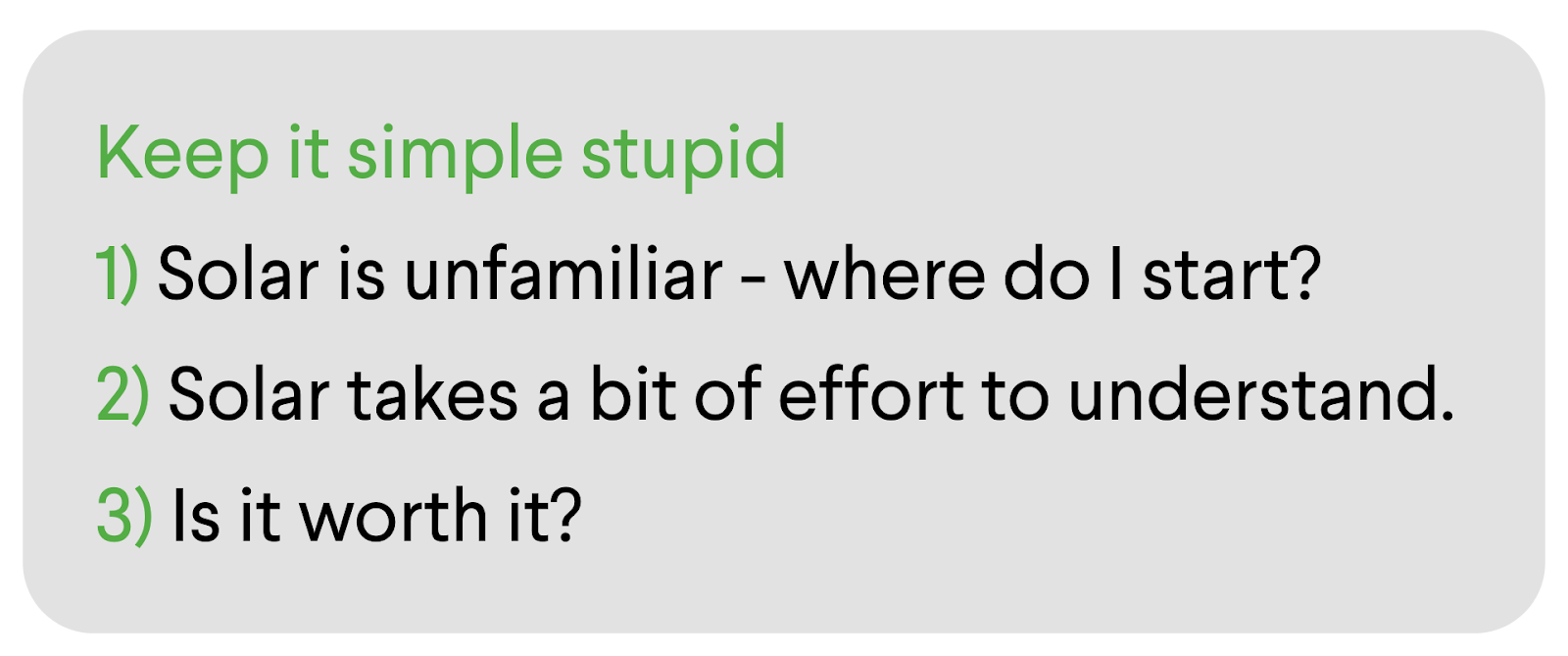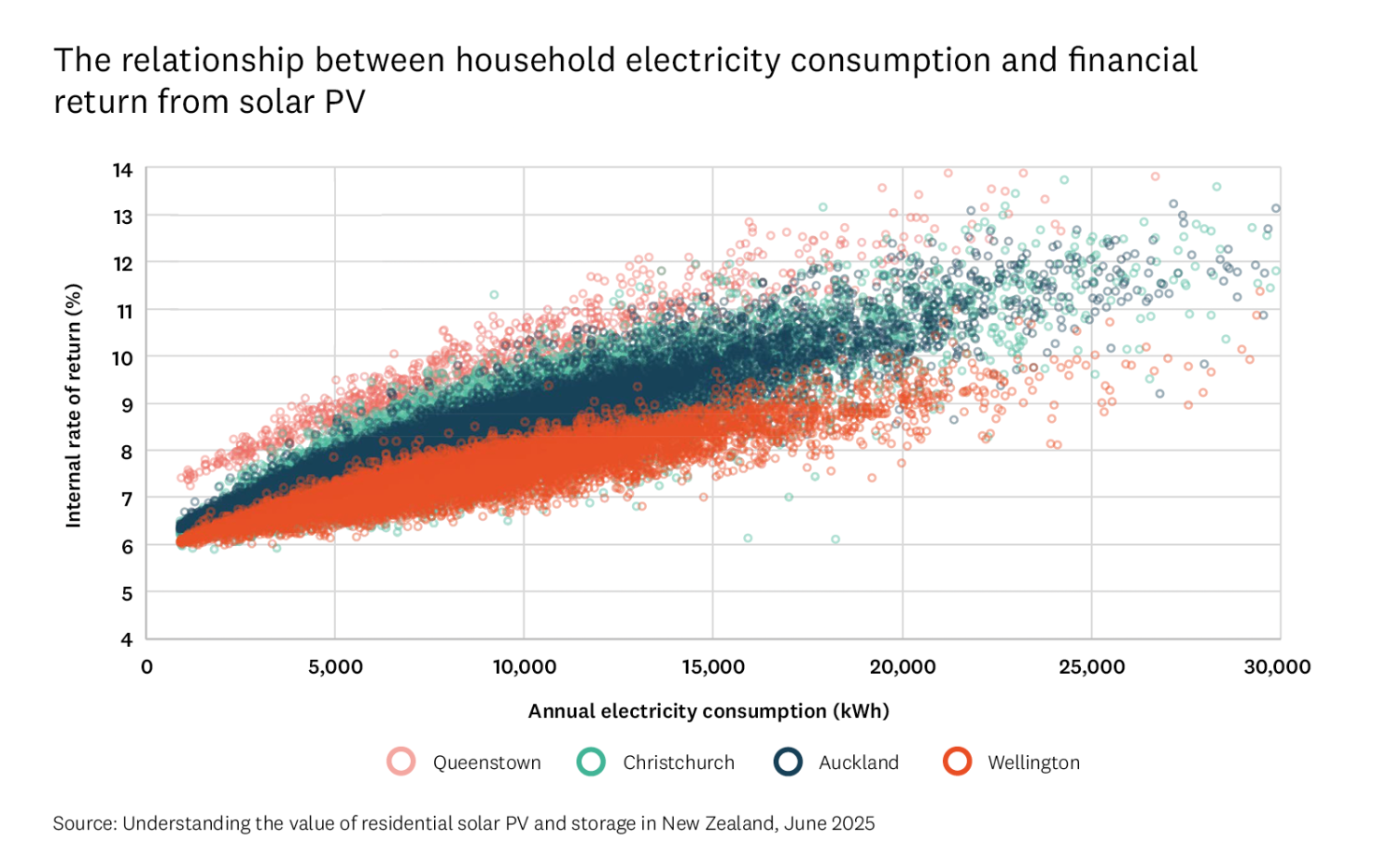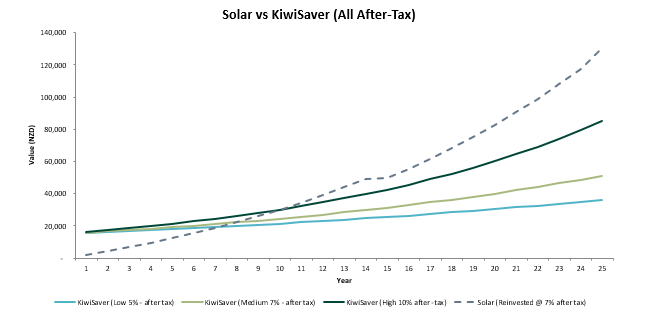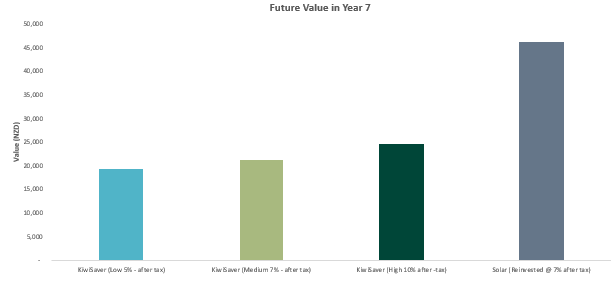Are we overcomplicating solar - how do we just "get it" like we "get" KiwiSaver?
Matt Ward - Harrisons Solar CEO
My 5th form English teacher taught us the "KISS" rule ("keep it simple stupid"). I can't help but think the solar industry in NZ could benefit from this.
We preach ROI, payback, kwh's and kw's (huh?) etc to kiwis when we "sell" the benefits of solar.
Don't get me wrong - the data is important as i) we are not selling vapourware (the benefits of solar are easily quantified), ii) solar has been redressing the historical perceptions of a lack of economic benefit (spoiler alert - this debate is thankfully over following the good work of EECA (Energy Efficiency and Conservation Authority) and Rewiring Aotearoa ) and iii) there is a lot of debate across the electricity sector right now given the electricity sector review. Accordingly, data has, and will have, an important role to play in advancing solar as we aim to lift adoption by kiwi households from 3% to 40% by 2040.
Solar is seen as complex - it doesn't need to be
The issue is, solar is seen by consumers as complex. And what's worse is that those of us in the solar industry take this for granted and keep talking about the latest 480 watt panel with 24.5% efficiency (that's good btw - I "think"). Most customers just look at this same all black panel (eg The AIKO Infinite) and think - "man, that's sexy - that will look great on my roof." We forget this and then add acronyms and financial constructs to explain things.

A useful perspective can be gained from looking at the investment industry and the adoption of KiwiSaver. New Zealanders as a whole just aren't financially literate but we "get" that KiwiSaver is an inherently good thing. Even if you aren't in the best performing fund or still in a default fund, it's still better than doing nothing. 42% of KiwiSaver members don't know if they are in an active or passively managed fund, 17% don't know if they are in a default or non-default scheme. 63.5% people are enrolled in KiwiSaver because, culturally, it's accepted as a good thing to do.
Just like you don't need to understand what WACC or PE ratios are to understand that KiwiSaver is a good thing, I think the time is right to approach solar in a similar way by keeping it simple. You shouldn't need to be good at maths or physics to feel comfortable putting some sleek looking panels on your home. This is where the Government can continue to help on the education and validation fronts.
The tipping point has been passed - solar is now simply a smart choice. In fact its even smarter than KiwiSaver. And that, KISS, is all people really need to know if we are doing our jobs well and delivering what we say we will as an industry.
Returns on solar are better than KiwiSaver
The report by EECA in June (EECA report) showcased the returns from solar - remember the IRRs are post tax because there are none on solar returns. For an average household (i.e. 4 people, hot water on electricity and perhaps a heatpump) you are safely looking at a return of approximately 10% per annum.

Now let's compare this to KiwiSaver.
If you spend $15k on a solar system (w/o a battery) you are likely to save around $2k in your first year based on what I see from hundreds of solar proposals each month. Allowing for 3% energy price escalation (noting 2/3 of network charges are fixed - a topic for another day), replacing the inverter (yes folks you do need to allow for this) and reinvesting your savings at 7% (pre tax) then the value of your KiwiSaver or cumulative solar savings looks a little like this..
The upshot- solar returns are higher than even the best performing growth KiwiSaver funds in NZ. After 20 years its 2x the medium risk/return KiwiSaver fund. And, the sun is a little more predicable than our capital markets with a standard deviation of 5% versus 15-20% on annual returns for the S&P500 over the past 20 years (no tariffs on sun sunshine).

Ok, but the naysayers will point out that the dotted line is lower than the others in the first few years while your system is paying itself back before the returns supercharge. What if I plan to move?
In that case the value of your property should reflect the value of future savings on electricity. In a study we did at Harrisons Solar with @, we saw a 4.4% or $35k increase in property value. Using my numbers above, if you move in year 7 then your value at that time is $18.6k from reinvested savings up until that point and a further $27k from the forecast savings out to year 25. The total of $46k compared to KiwiSaver at $19k - $24k depending on what sort of fund you are in.

So, at the risk of being called a hypocrite the above was all to say - kiwis "get" KiwiSaver is a good thing. You don't need to be an investment banker and understand the share market. Kiwis don't run excel spreadsheets to work out whether to get into KiwiSaver - its simply become part of who we are. This must be our aim as a solar industry; to ensure solar is seen as "a thing kiwis do".
Perhaps we borrow that brand equity in KiwiSaver and use it as a frame of reference for solar?
In any event, we can keep reinforcing the value of solar with rational analysis but the real opportunity is to connect at the emotional level in a way that feels simple and inclusive.

Book a Free Quote Today
Book a FREE on-site measure and quote at a time that suits you, and we can also give you a proposal on the spot.
.webp)
Book an Appointment Today!
Book a FREE on-site measure and quote at a time that suits you, and we can also give you a proposal on the spot.

Get your Beginners
Guide to Solar


How we have helped our customers
Hear from some of our customers on how solar has slashed their power bill.

.avif)


.avif)